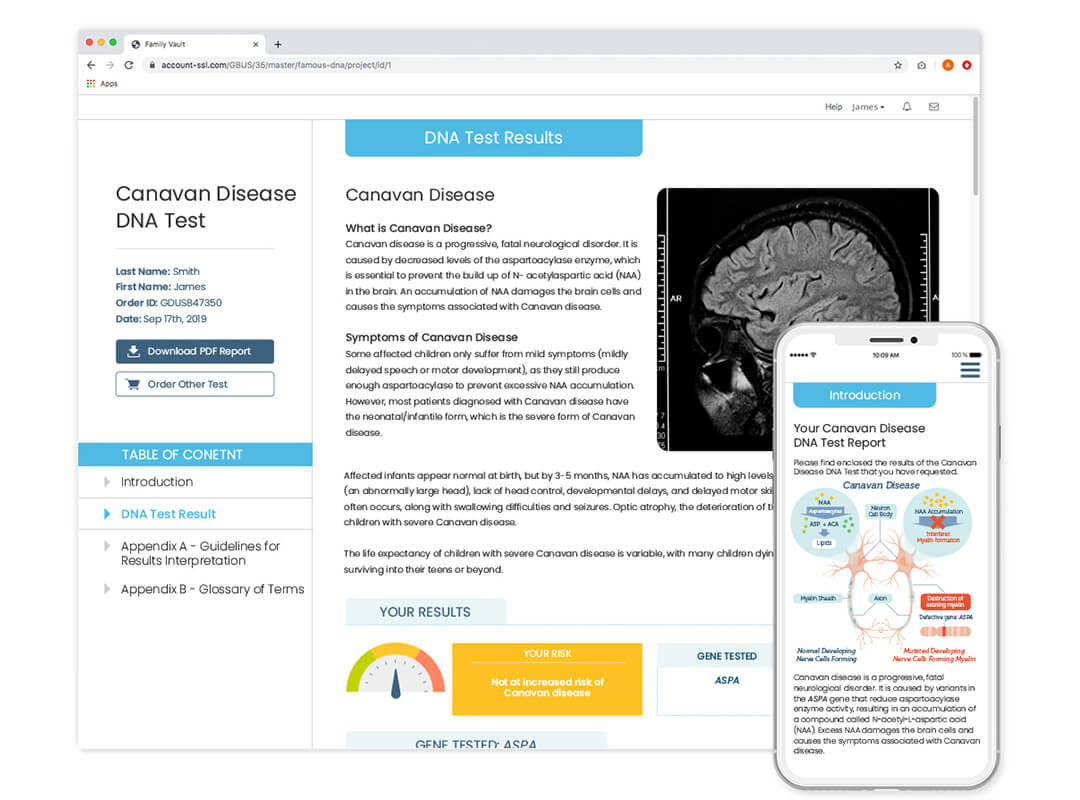Canavan Disease DNA Test
Are you a genetic carrier for Canavan disease? Find out with this DNA Test.
- Detects three ASPA variants that are the most common cause of Canavan disease in Ashkenazi Jewish
- Characterized by an accumulation of N-acetyl-L-aspartic acid (NAA) in neutrons
- Carrier screening test intended for couples who are planning to become pregnant
- 100% private and confidential online results
Already have DNA markers? Sign in and upload your data to view results.
Need to take the DNA Test? Order our easy-to-use swab kit.





